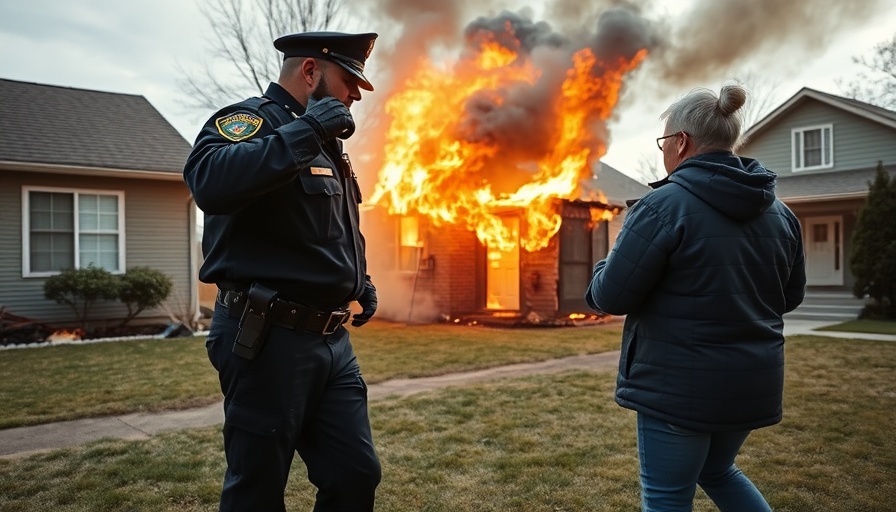
Virginia's Courageous Response to Flood Crisis
This past week, tragedy struck parts of Virginia as heavy rains led to severe flooding, transforming roadways into impassable torrents. First responders from various agencies rushed to the scene, demonstrating remarkable bravery as they conducted numerous rescues of citizens trapped in vehicles submerged by rising waters. The coordinated effort underscored the vital role that law enforcement and emergency services play in safeguarding communities during natural disasters.
Lessons from the Frontlines: Enhancing Preparedness
The rapid response to this flooding incident unveils a crucial opportunity for law enforcement agencies across the country to revisit their emergency preparedness plans. History has shown that once-in-a-lifetime weather events are becoming more common. Therefore, agencies should incorporate extensive training programs that emphasize swift rescue techniques and the proper use of police equipment during floods, such as rescue boats and drones equipped for aerial assessment. Implementing these strategies could significantly enhance officer safety and opportunities for timely interventions in future disasters.
Community Engagement: Building Trust Through Action
One of the benefits of this rescue mission extends beyond the immediate saving of lives. It has allowed officers to strengthen community relations, showcasing their commitment to altruism and enhancing police-community interaction. Engaging in such rescue operations actively demonstrates to citizens that the police are their partners during crises, fostering an environment of trust and collaboration. Developing programs grounded in community engagement can further improve not only the safety of residents but can also contribute to reducing the stigma often surrounding police work.
Fostering Technology in Rescues
As technology continues to evolve, integrating innovative solutions into these critical operations can dramatically improve outcomes. Consider the role of AI analytics in predicting flooding areas based on prior data; this can help first responders prepare and position their resources effectively. Additionally, utilizing body cameras during these rescue operations can provide transparency and accountability, reaffirming the importance of law enforcement in public safety. These advancements not only bolster operational efficiency but also cultivate trust within the community.
Future Trends: Preparing for the Unpredictable
Looking forward, it will be imperative for both local and national law enforcement agencies to set their sights on evolving disaster response protocols. Emerging trends indicate a growing emphasis on mental health resources for first responders, essential to managing the emotional toll these situations take on officers. Improved wellness support initiatives can also empower police departments, giving them the tools to better serve the community during times of crisis.
While the recent Virginia flooding revealed many challenges, it also offered profound insights into the resilience and adaptability of law enforcement in the face of adversity. Continued investment in training, community engagement, and innovative technologies will ensure that police departments are not only prepared to respond to crises but can actively foster a culture of trust and collaboration.
 Add Row
Add Row  Add
Add 

 Add Element
Add Element 


Write A Comment